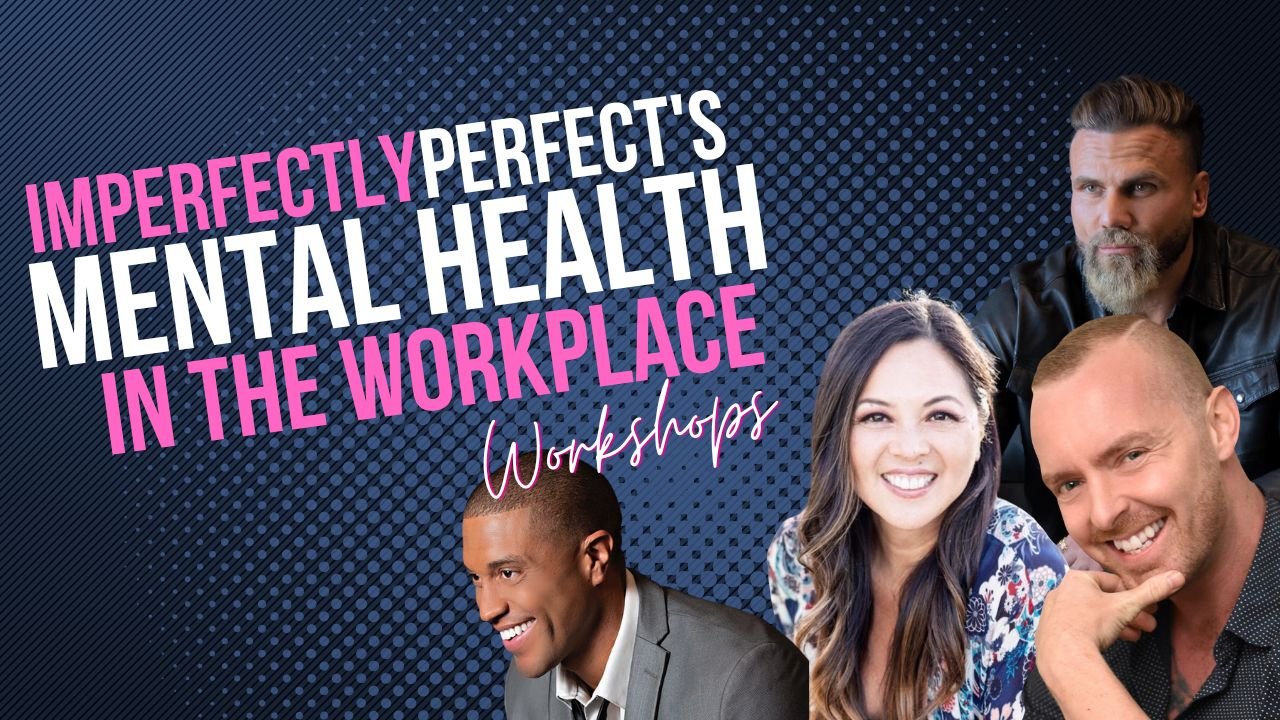In a world where social media is saturated with fleeting trends and performative activism, authentic mental health awareness can sometimes get lost in the noise. Many campaigns focus on spreading awareness but often fall short of sparking meaningful change or engaging with the root causes of the mental health crisis. Enter the Imperfectly Perfect Campaign—a global movement that is not just raising awareness but creating real, lasting impact in how we perceive and address mental health.
Redefining the Conversation Around Mental Health
Founded by visionary leader Glenn Marsden, the Imperfectly Perfect Campaign started as a deeply personal mission. After losing a close friend to the silent struggles of mental health and battling his own challenges, Glenn decided to take action. What began as a grassroots effort to shatter societal stereotypes around mental health has since evolved into an internationally recognised movement, touching millions of lives across the globe.
The campaign is grounded in one powerful truth: "People aren’t looking for perfect leaders; they’re craving authentic ones." By emphasising vulnerability and honesty, the Imperfectly Perfect Campaign challenges the stigma that often prevents individuals from seeking help. Instead of focusing on polished narratives, it showcases real stories of struggle, resilience, and recovery, breaking through the glossy façades that dominate modern media.
Cutting Through the Noise
What sets the Imperfectly Perfect Campaign apart in the crowded mental health advocacy space? Here are a few ways the campaign is leading the charge:
1. Stories That Resonate
The Imperfectly Perfect Campaign’s storytelling approach is raw, honest, and deeply personal. The campaign has featured over 500 public figures, including celebrities, influencers, and thought leaders, who have courageously shared their mental health journeys. These stories are not just about raising awareness—they inspire action, showing that it’s okay to seek help and that no one is alone in their struggles.
2. Global Reach, Grassroots Impact
From Hollywood to small towns, the Imperfectly Perfect Campaign has a remarkable ability to connect with diverse audiences. Through international summits, workshops, and school talks, the campaign fosters dialogue in communities where mental health conversations were once taboo. By involving everyday people alongside high-profile ambassadors, Imperfectly Perfect Campaign ensures its message is inclusive and universal.
3. Innovative Initiatives
The Imperfectly Perfect Campaign isn’t afraid to think outside the box. Its projects range from international best-selling book series to photography to mental health-focused summits and events. By leveraging creativity and collaboration, the Imperfectly Perfect Campaign creates experiences that go beyond awareness, providing tools and resources for real change.
4. Building Communities of Support
One of Imperfectly Perfect Campaign’s greatest strengths is its ability to create a sense of belonging. It brings together people from all walks of life, fostering a global community of understanding and empathy. This network is a safe space where individuals can share their stories, find support, and discover they are not alone.
The Power of Authentic Leadership
At the heart of the Imperfectly Perfect Campaign’s success is Glenn Marsden’s authentic leadership. Unlike many campaigns that rely on corporate backing or massive budgets, the Imperfectly Perfect Campaign started with no resources, no network, and no funding. What it had was a leader who was deeply committed to making a difference. Glenn’s journey from a one-man mission to an international movement is a testament to the power of authenticity, passion, and persistence.
He often says, "It’s not about being perfect; it’s about being real." This philosophy has resonated with millions, proving that vulnerability can be a powerful catalyst for change.
Why Mental Health Awareness Still Matters
The need for mental health awareness has never been greater. In an increasingly fast-paced, high-pressure world, more people are struggling in silence. Depression, anxiety, and other mental health challenges are often hidden beneath a surface of “perfection,” perpetuated by social media and societal expectations.
Imperfectly Perfect Campaign’s approach cuts through this superficiality, reminding us that it’s okay to be imperfect. By sharing the stories behind the smiles, the campaign is not only raising awareness but also encouraging people to seek help, build resilience, and foster genuine human connections.
Join the Movement
The Imperfectly Perfect Campaign is more than a campaign—it’s a call to action. Whether you’re a mental health advocate, a business leader, or someone who has faced their own struggles, the Imperfectly Perfect Campaign invites you to join the movement. Share your story. Start a conversation. Be the reason someone realises they’re not alone.
Together, we can shatter the stigma around mental health and create a world where imperfection is celebrated, not hidden. Because real change begins when we embrace the imperfectly perfect.
To learn more about the Imperfectly Perfect Campaign, visit imperfectlyperfectcampaign.org and discover how you can be part of this transformative movement.
glennmarsden.com























